Athlete’s foot, or tinea pedis, is a common fungal infection that affects the skin on the feet, especially between the toes. It often causes itching, redness, peeling, and sometimes cracking or blisters. The condition thrives in warm, moist environments like locker rooms, communal showers, and sweaty shoes, and is more common in athletes or individuals who wear tight-fitting footwear for extended periods. Athlete’s foot can sometimes be associated with fungal infections on other parts of the body, such as the nails (onychomycosis) or groin (jock itch).
Your Darabi Dermatology provider can diagnose it easily and recommend effective treatments such as topical antifungal creams or, in more stubborn cases, oral antifungal medications.
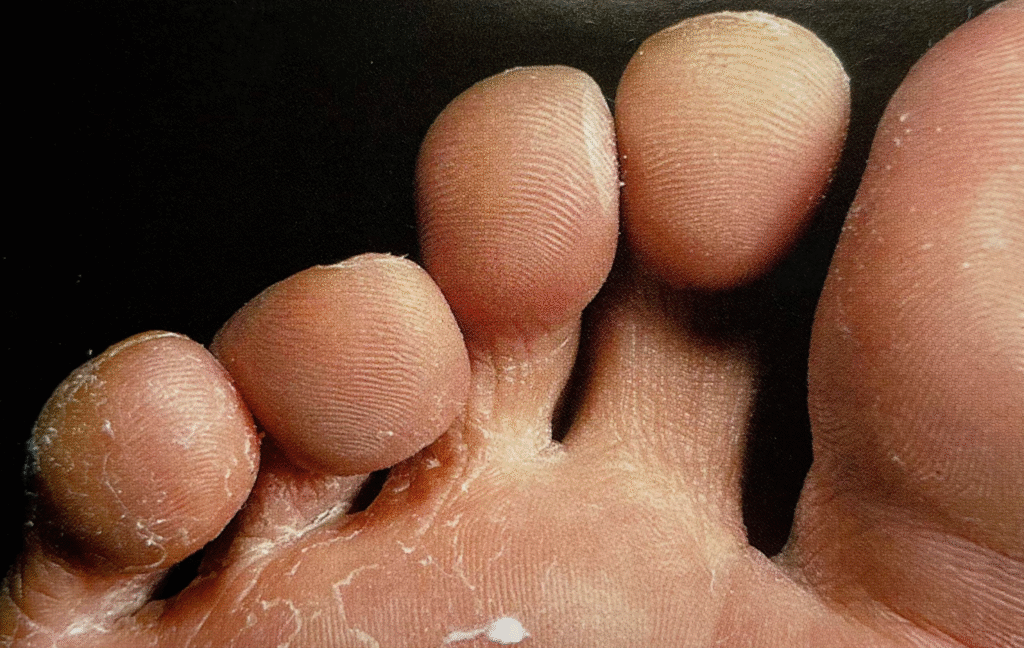
Bed Bugs are small, reddish-brown insects that feed on human blood, often at night while a person is sleeping. Their bites typically appear as small, itchy red welts, often in clusters or a linear pattern, and can cause significant discomfort, allergic reactions, or secondary skin infections from scratching.
Bed bugs are acquired through infested bedding, furniture, luggage, or clothing and are commonly found in homes, hotels, or dormitories. Preventing bed bug infestations involves inspecting sleeping areas when traveling, keeping luggage off the floor, and washing clothing in hot water after returning home.
While bed bug infestations require professional pest control, a dermatologist can treat the skin reactions caused by bites using topical corticosteroids, antihistamines for itching, and antibiotics if there is an infection. Our clinic offers expert diagnosis and relief for bed bug-related skin concerns.

Genital warts are a common sexually transmitted infection caused by certain strains of the human papillomavirus (HPV). They appear as small, flesh-colored or gray growths in the genital or anal area and can be raised, flat, single, or clustered.
Genital warts are spread through skin-to-skin contact during sexual activity, and while they are usually painless, they can cause discomfort, itching, or emotional distress.
Certain high-risk strains of HPV are also associated with cervical, anal, and other genital cancers, making evaluation and monitoring important.
Your Darabi Dermatology provider can treat genital warts using methods such as topical medications, cryotherapy (freezing), surgical removal, or laser therapy, depending on the size, number, and location of the warts.
self-schedule your appointment now on our website
Head lice are tiny, wingless insects that live on the scalp and feed on human blood, causing intense itching and irritation.
They are most commonly spread through direct head-to-head contact, especially among children in schools or daycare settings, but can also be transmitted by sharing hats, combs, or pillows. Head lice do not indicate poor hygiene and are not known to carry disease. Prevention involves avoiding shared personal items and routine checks in close-contact settings.
A dermatologist can confirm the diagnosis and recommend effective treatments, including over-the-counter or prescription topical insecticides, as well as strategies for thoroughly cleaning personal items to prevent reinfestation.

Cold sores, also known as fever blisters or herpes simplex, are small, painful, fluid-filled lesions that typically appear on or around the lips.
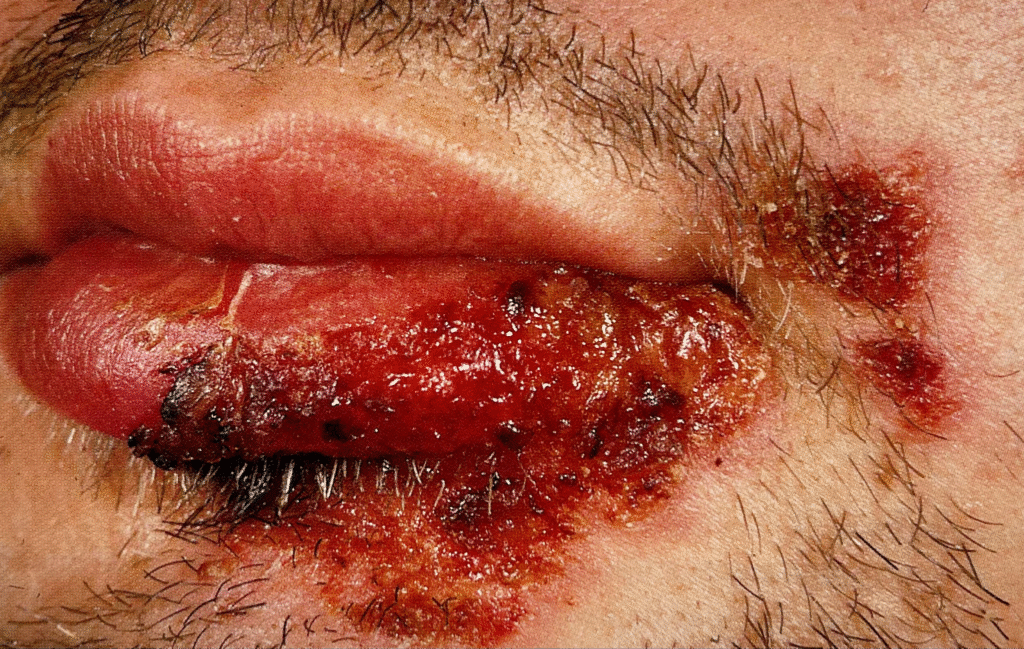
They are caused by the herpes simplex virus (most often HSV-1) and are highly contagious, spread through direct contact with an infected person’s skin or saliva. Once contracted, the virus remains dormant in the body and can reactivate due to triggers like stress, illness, sun exposure, or a weakened immune system.
While cold sores usually heal on their own within 1–2 weeks, a dermatologist can prescribe antiviral medications—topical or oral—to shorten outbreaks, reduce symptoms, and help prevent future flare-ups.
Using sunscreen on the lips and avoiding contact with active sores can help reduce the risk of recurrence and transmission.
Molluscum contagiosum is a common, contagious skin infection caused by a poxvirus, resulting in small, firm, flesh-colored bumps with a central dimple. It is most often seen in children, but can also affect adults, especially those with weakened immune systems or through sexual contact.
The virus spreads through direct skin-to-skin contact, shared towels, clothing, or contaminated surfaces.
While molluscum is typically harmless and may resolve on its own over several months, a dermatologist can offer treatments to speed up resolution and prevent spread, including cryotherapy (freezing), curettage (gentle scraping), topical treatments, or laser therapy. Good hygiene and avoiding skin contact with infected individuals can help prevent transmission.
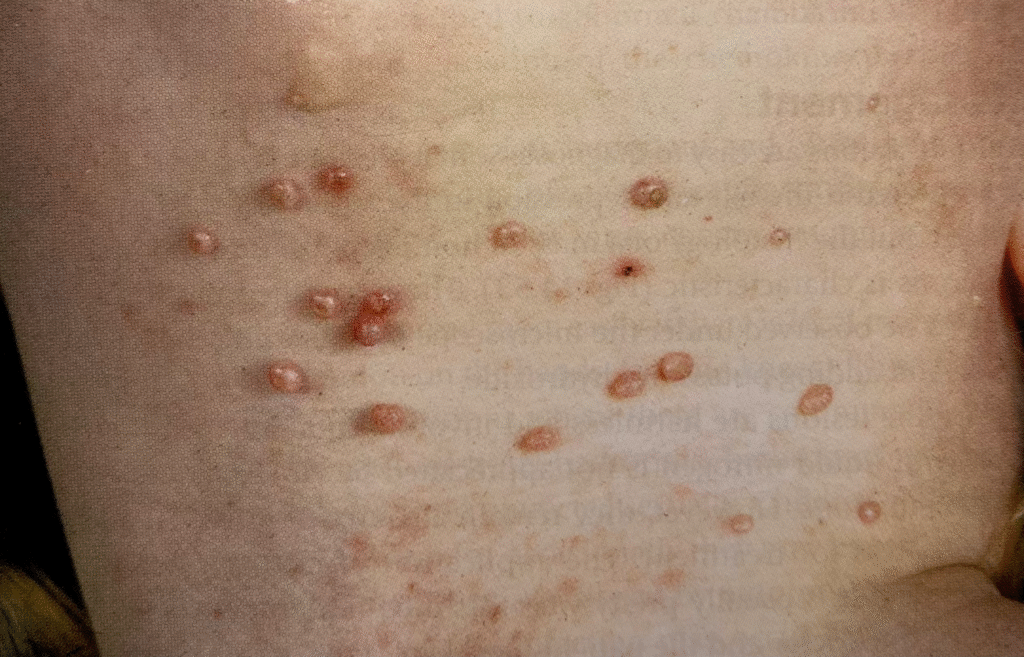
self-schedule your appointment now on our website
Scabies is a highly contagious skin condition caused by a microscopic mite called Sarcoptes scabiei, which burrows into the skin and causes intense itching, especially at night.
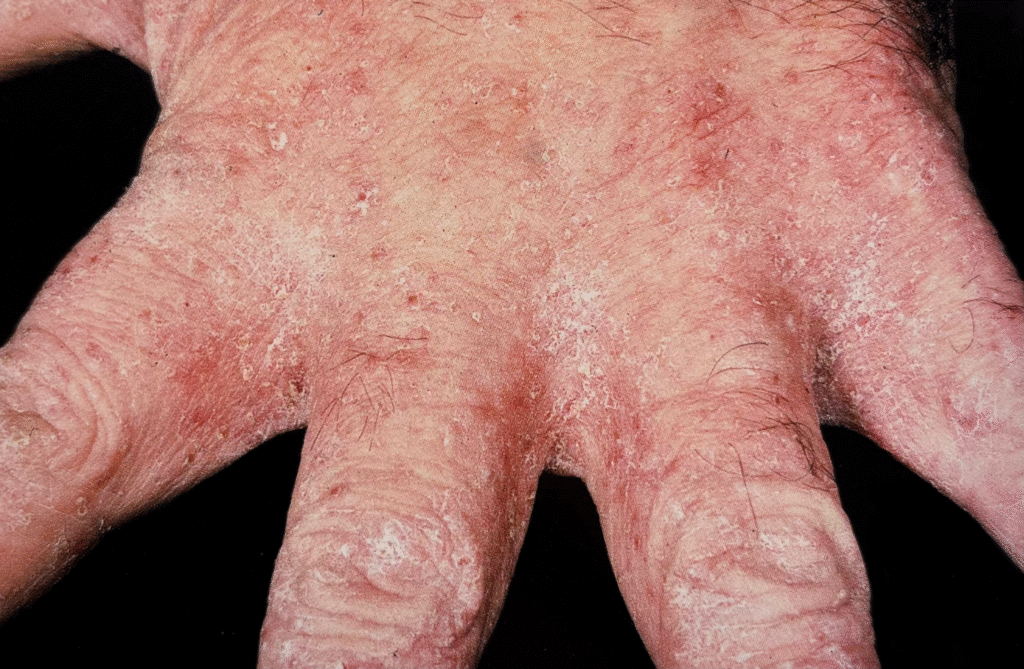
It spreads through close physical contact or sharing bedding, clothing, or towels with an infected person, making outbreaks common in households, schools, and care facilities.
Scabies typically presents as a red, itchy rash with small bumps or burrow lines, often on the wrists, fingers, waist, and other warm areas of the body.
A dermatologist can diagnose scabies by scraping a burrow and finding the mite under the microscope.
Your Darabi Dermatology provider can prescribe medicated creams or lotions, such as permethrin, to kill the mites. To prevent reinfestation, it’s essential to treat close contacts and wash clothing and bedding in hot water.
Shingles, also known as herpes zoster, is a painful skin rash caused by reactivation of the varicella-zoster virus—the same virus that causes chickenpox. After a person recovers from chickenpox, the virus remains dormant in nerve cells and can reactivate later in life, often triggered by stress, aging, or a weakened immune system.
Shingles usually presents as a band of red, blistering rash on one side of the body, often accompanied by burning pain or tingling. It is not directly contagious, but someone who has never had chickenpox or the vaccine can develop chickenpox from contact with the rash.
Your Darabi Dermatology provider can prescribe antiviral medications to shorten the duration and severity of shingles and manage pain.
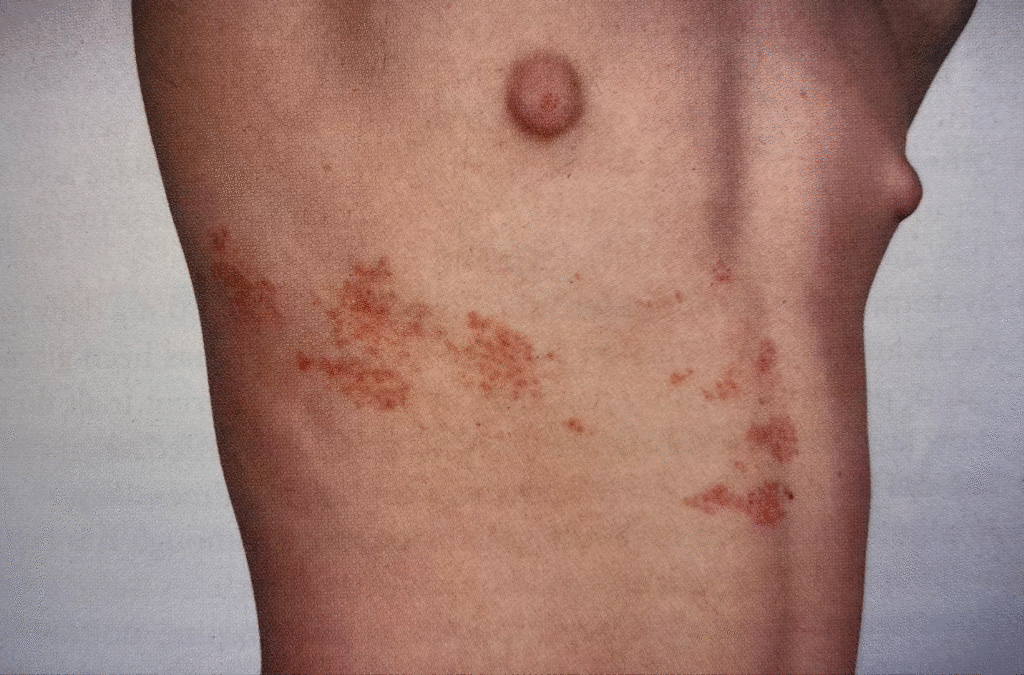
Prevention is possible with the shingles vaccine, recommended for adults over 50 or those with certain risk factors.
Warts are small, rough, benign skin growths caused by the human papillomavirus (HPV). They commonly appear on the hands, feet, or other areas prone to minor trauma and can spread through direct skin contact or by touching contaminated surfaces like locker room floors or shared towels.
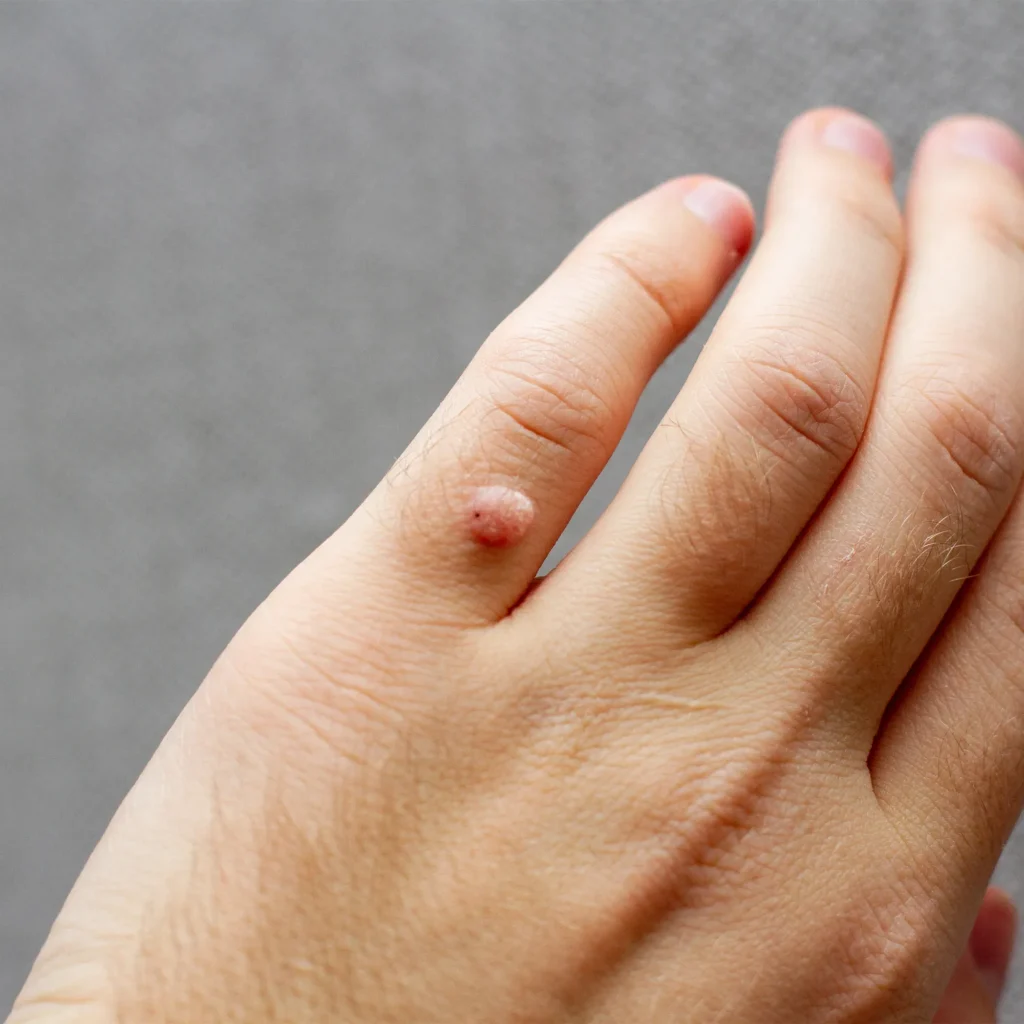
While some warts may resolve on their own, they can persist or spread, making professional treatment beneficial. Your Darabi Dermatology provider can offer effective options such as cryotherapy (freezing), salicylic acid and compounded cream treatments or injections with inactivated yeasts that draw the immune system to the wart to eliminate warts and reduce recurrence.
Good hygiene and avoiding skin-to-skin contact with warts can help prevent their spread.